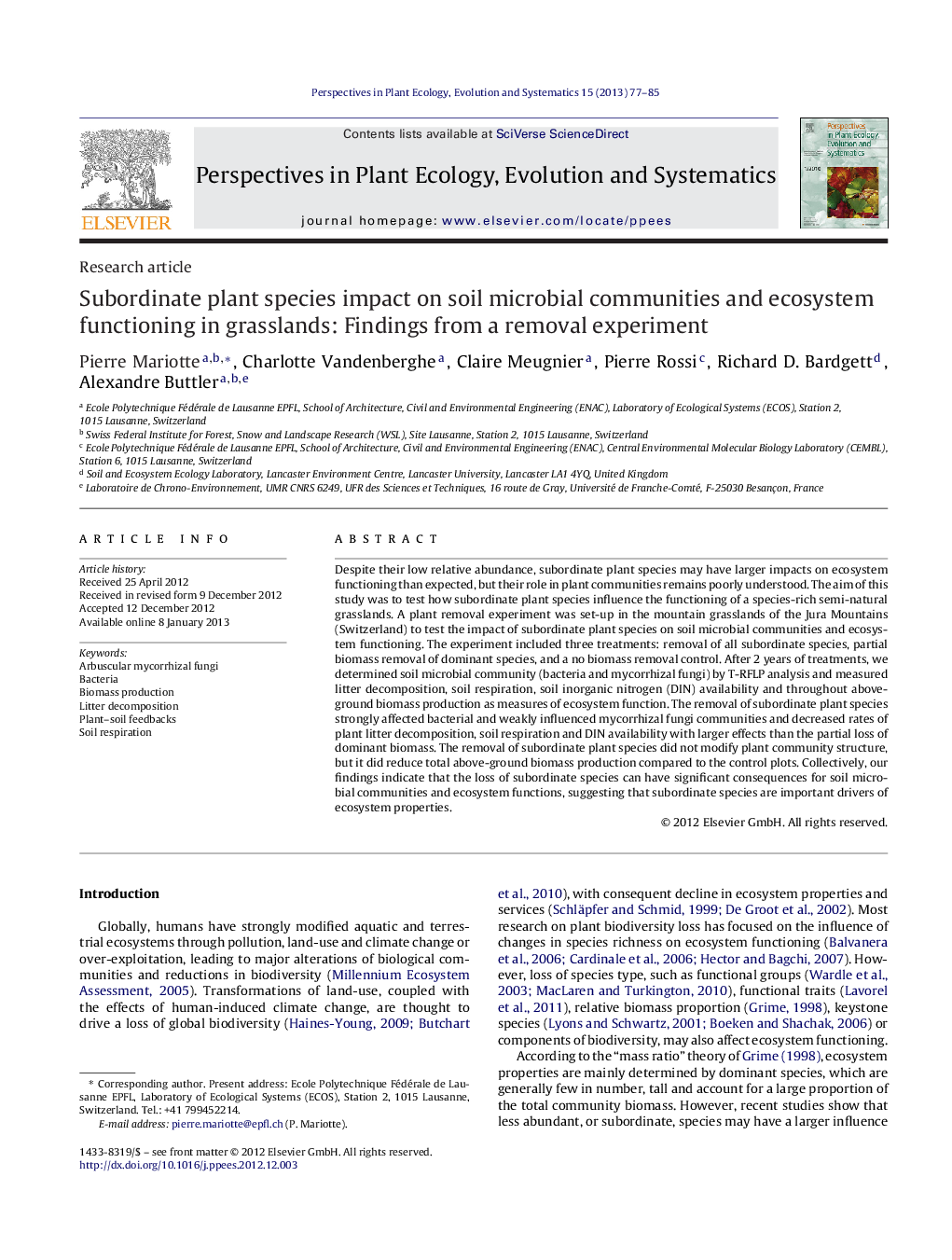| Article ID | Journal | Published Year | Pages | File Type |
|---|---|---|---|---|
| 4401028 | Perspectives in Plant Ecology, Evolution and Systematics | 2013 | 9 Pages |
Abstract
Despite their low relative abundance, subordinate plant species may have larger impacts on ecosystem functioning than expected, but their role in plant communities remains poorly understood. The aim of this study was to test how subordinate plant species influence the functioning of a species-rich semi-natural grasslands. A plant removal experiment was set-up in the mountain grasslands of the Jura Mountains (Switzerland) to test the impact of subordinate plant species on soil microbial communities and ecosystem functioning. The experiment included three treatments: removal of all subordinate species, partial biomass removal of dominant species, and a no biomass removal control. After 2 years of treatments, we determined soil microbial community (bacteria and mycorrhizal fungi) by T-RFLP analysis and measured litter decomposition, soil respiration, soil inorganic nitrogen (DIN) availability and throughout above-ground biomass production as measures of ecosystem function. The removal of subordinate plant species strongly affected bacterial and weakly influenced mycorrhizal fungi communities and decreased rates of plant litter decomposition, soil respiration and DIN availability with larger effects than the partial loss of dominant biomass. The removal of subordinate plant species did not modify plant community structure, but it did reduce total above-ground biomass production compared to the control plots. Collectively, our findings indicate that the loss of subordinate species can have significant consequences for soil microbial communities and ecosystem functions, suggesting that subordinate species are important drivers of ecosystem properties.
Keywords
Related Topics
Life Sciences
Agricultural and Biological Sciences
Ecology, Evolution, Behavior and Systematics
Authors
Pierre Mariotte, Charlotte Vandenberghe, Claire Meugnier, Pierre Rossi, Richard D. Bardgett, Alexandre Buttler,
